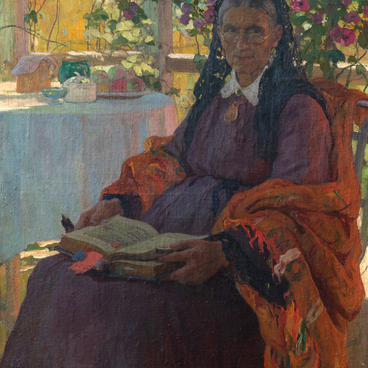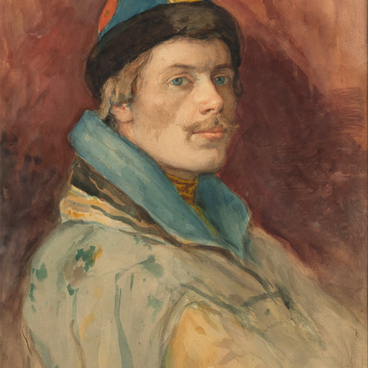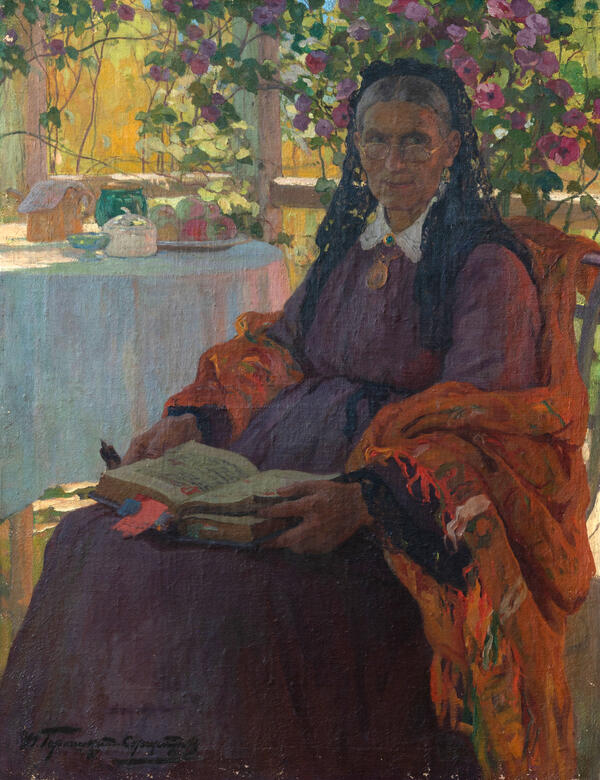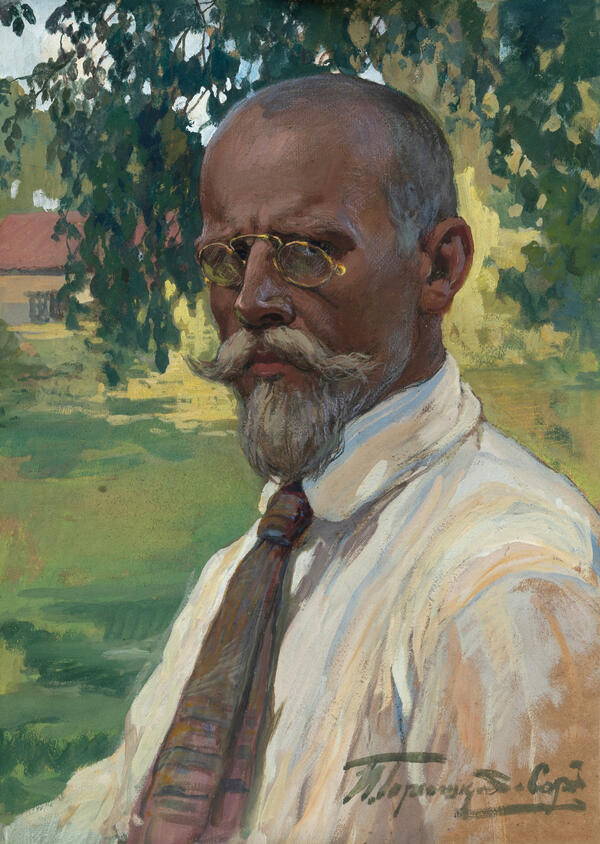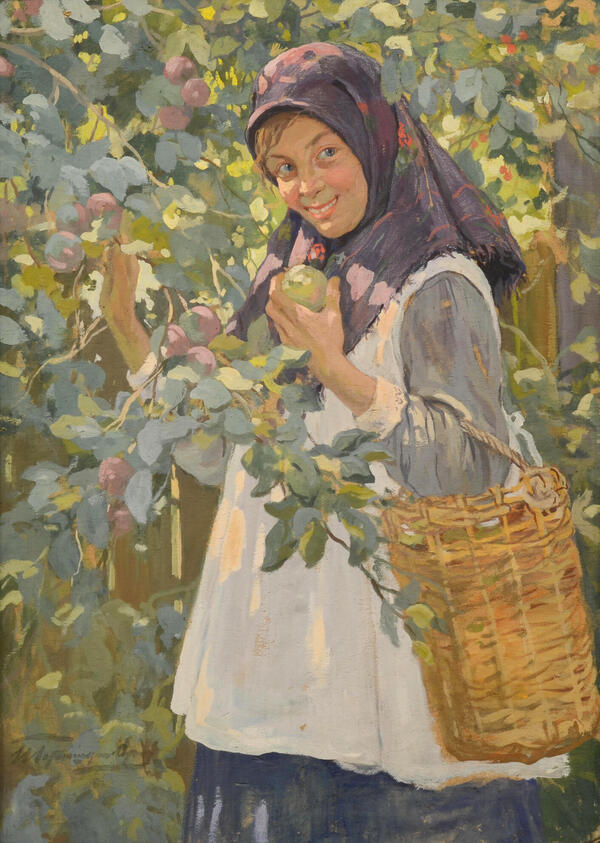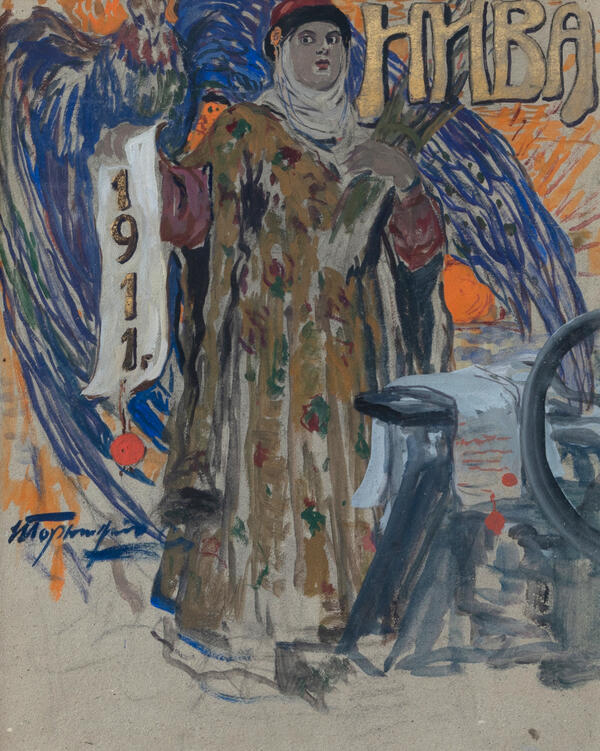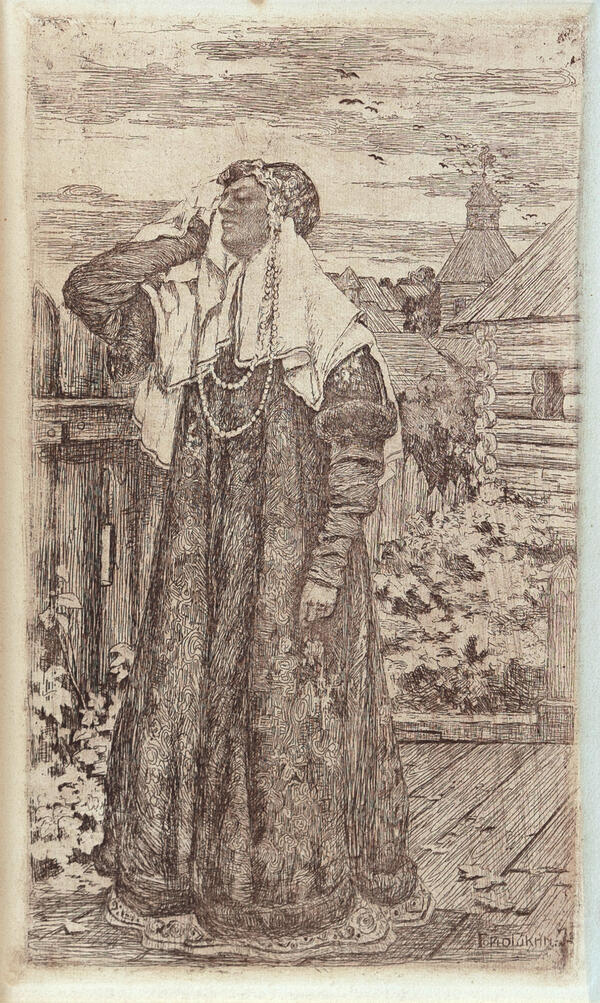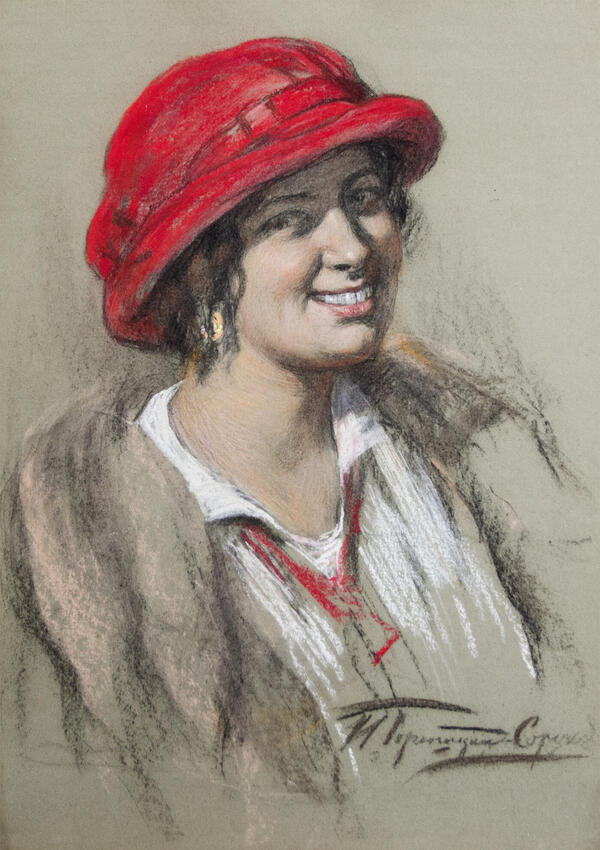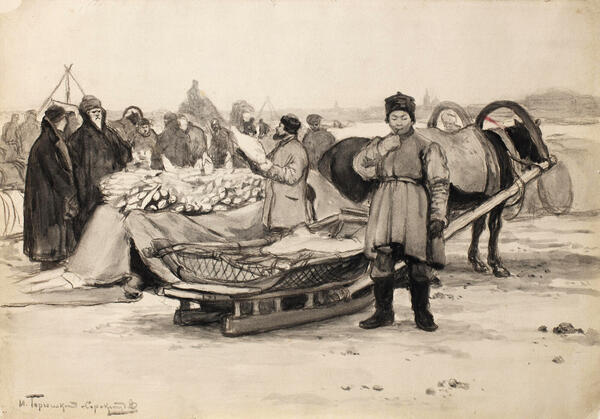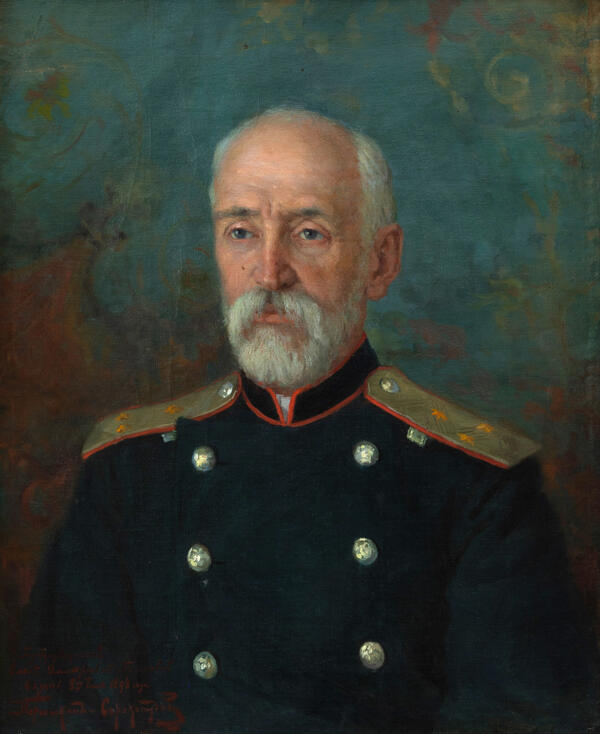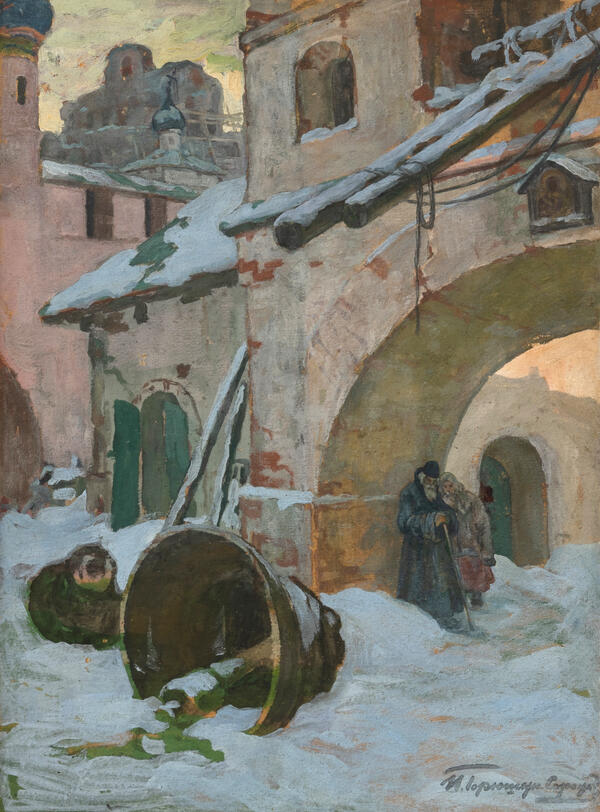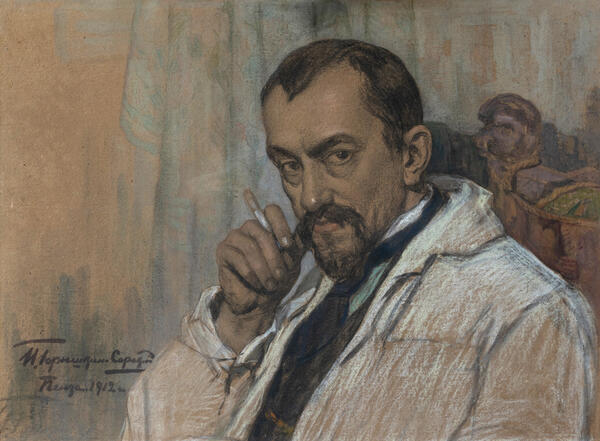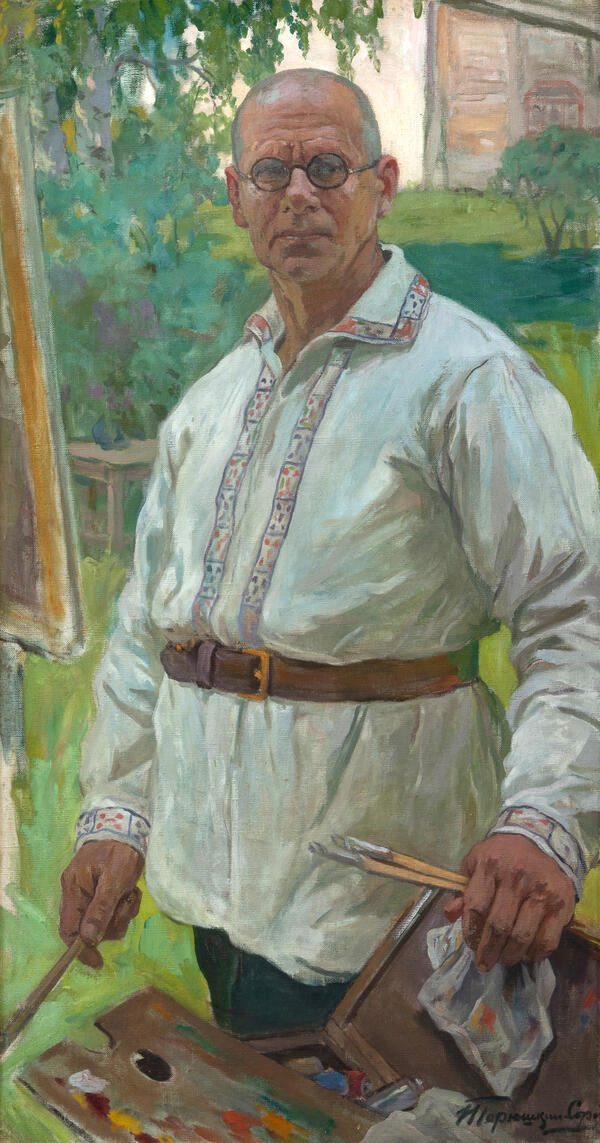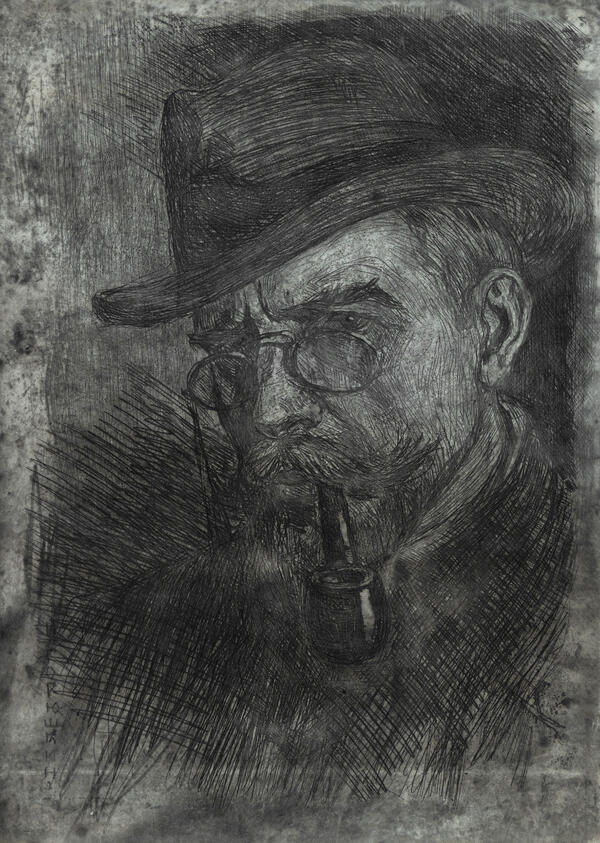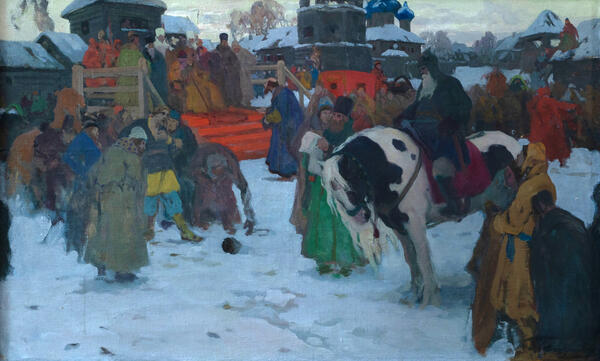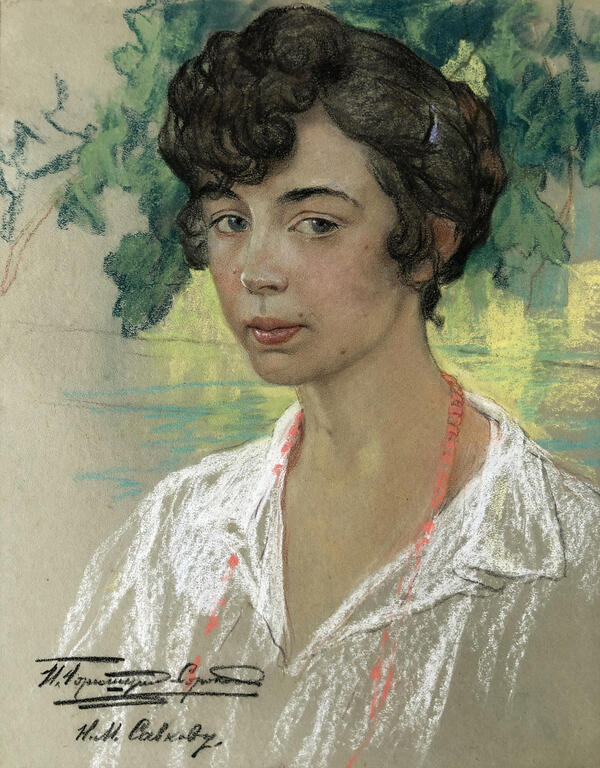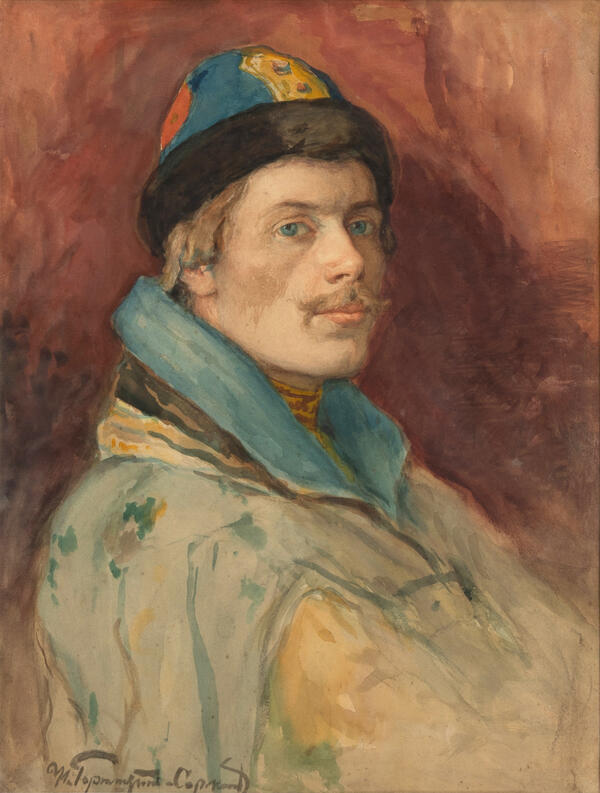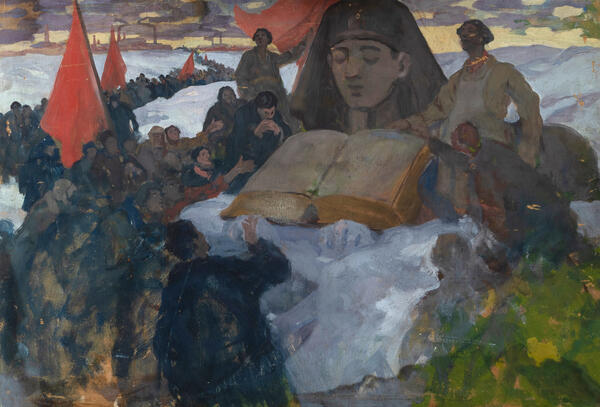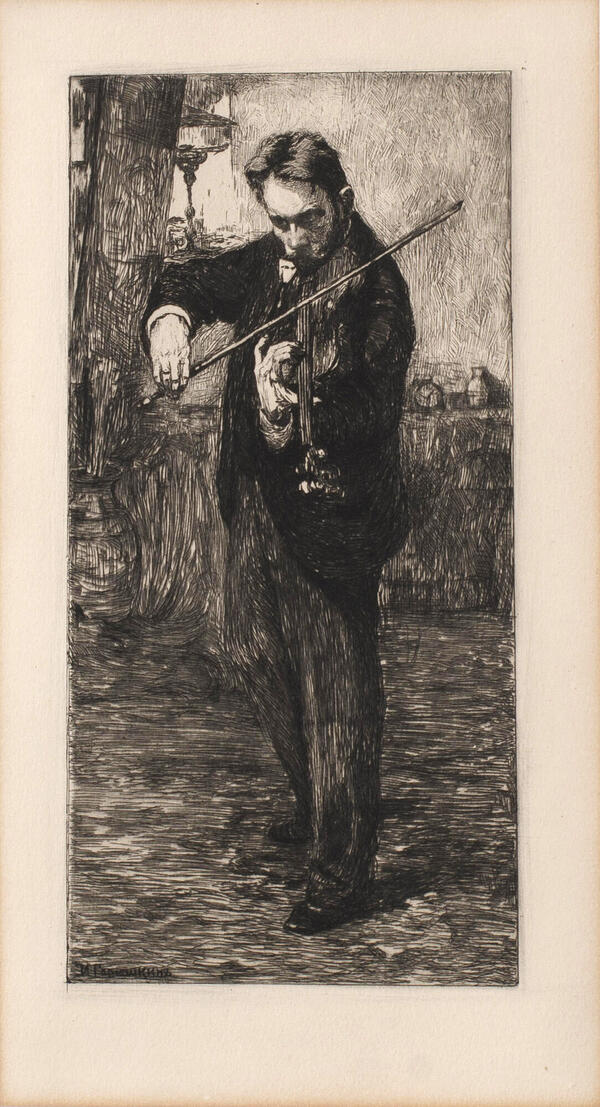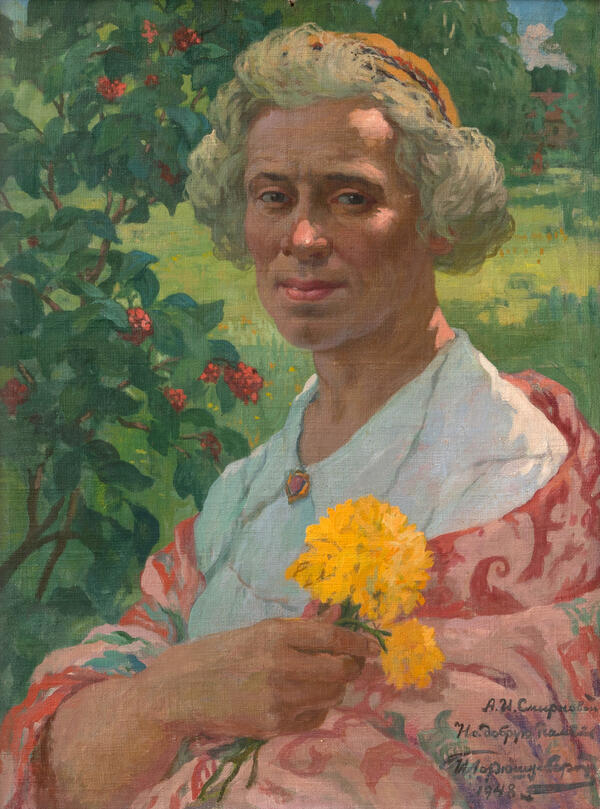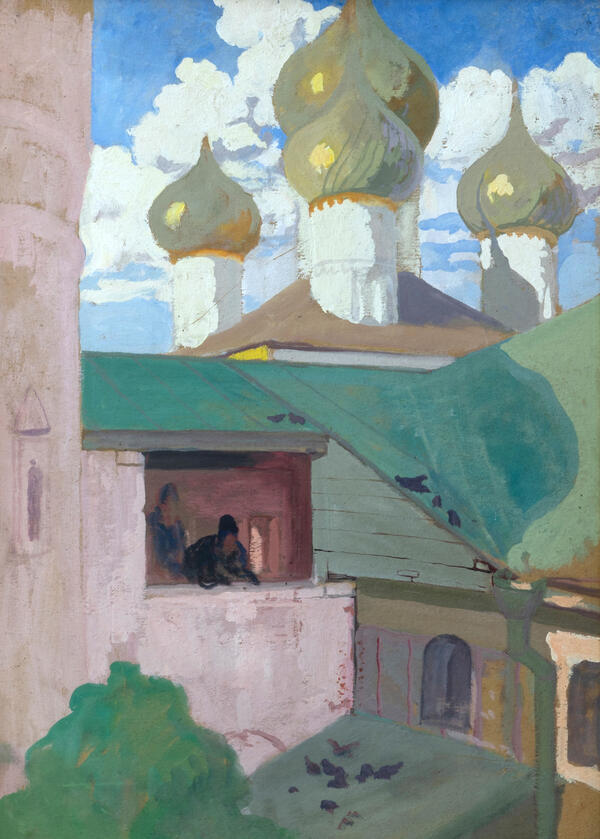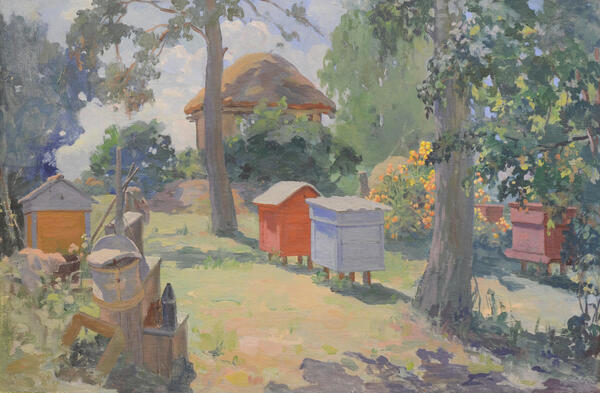The events of the First World War had a significant impact on Ivan Silych Goryushkin-Sorokopudov. In the first weeks of the conflict, he wrote to his friend and patron General Nikolay Pavlovich Petrov. He hoped that the general would help him get permission to join the active army as a war artist. Although he never made it to the front lines, his work was still influenced by the challenges of the war.
Ivan Goryushkin-Sorokopudov addressed various aspects of war in his work. He depicted the commander-in-chief of the Imperial Russian Army in “Prince Nicholas Nikolayevich on Station” and was particularly moved by the heroic actions of Russian women during the war. In the 1910s, he created several paintings exploring this theme, including “The Elder Vasilisa”, “The Feat of a Sister of Mercy”, “The Feat”, and “Portrait of a Sister of Mercy”.
During the period of milestone dramatic events in Russian history, Ivan Goryushkin-Sorokopudov often worked on commission, painting portraits of contemporaries for magazines and publishers. At the same time, he also created some tranquil images that reflected his inner state and his own sympathies. An example of this is the work from the museum collection. This is a portrait of a sister of mercy, in which the artist embodied beauty, femininity, and the power of life that can conquer all obstacles. With her hands, the sister of mercy is ready to do everything to soothe, alleviate suffering, and bring peace.
In this painting, the artist created a bright image that conveyed hope in those difficult times.
The model sitting for this portrait was the artist’s wife Klavdiya Petrovna Kholdina. She was his favorite model for many years. Her face embodies kindness and compassion.
Later, Ivan Goryushkin-Sorokopudov continued to explore the theme of war. Between 1941 and 1945, the elderly artist was unable to paint but did his best to help the war effort in other ways. He sent some of his possessions to Marshal Georgy Konstantinovich Zhukov to support the army. The Penza Art Gallery houses a letter that Ivan Goryushkin-Sorokopudov received in response to his good deed.
